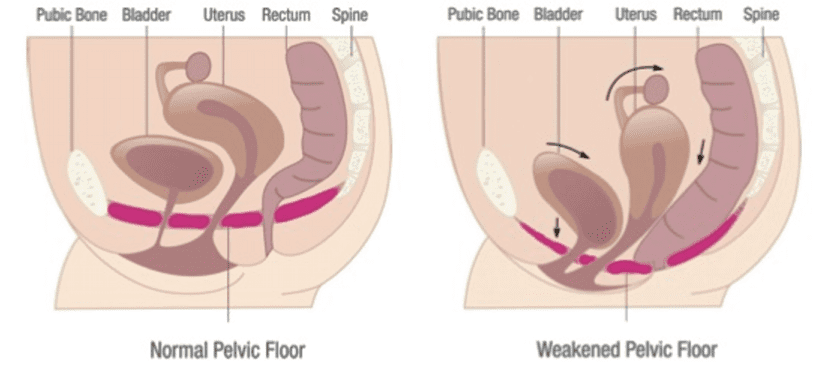Causes Of Pelvic Floor Collapse

1 pelvic organ prolapse is less common than urinary or fecal incontinence but affects almost 3 of u s.
Causes of pelvic floor collapse. Weakened pelvic muscles and connective tissues are the leading cause of pelvic or vaginal prolapse. Very mild prolapse organs are still fairly well supported by the pelvic floor. In pelvic organ prolapse the pelvic floor muscles weaken causing one or more of the pelvic organs to fall downward into or out of the vagina. Pelvic organ prolapse a type of pelvic floor disorder can affect many women.
Overusing the pelvic muscles like going to the bathroom too often or pushing too hard eventually leading to poor muscle coordination. A number of things can weaken your pelvic floor and increase your chance of developing pelvic organ prolapse. If you have pelvic organ prolapse you ll notice a bulge at the opening of the vagina. There are several potential reasons why a person s pelvic floor may weaken and cause pelvic.
Uterine prolapse occurs when pelvic floor muscles and ligaments stretch and weaken and no longer provide enough support for the uterus. Women most commonly develop pelvic organ prolapse years after childbirth after a hysterectomy or after menopause. 1 pelvic organ prolapse happens more often in older women and in white and hispanic women than in younger women or women of other racial and. If your pelvic floor dysfunction is the result of a rectal prolapse a condition that causes the rectal tissue to fall into the anal opening surgery will loosen the affected pelvic organs.
The full causes of pelvic floor dysfunction are still unknown. When the muscles and ligaments supporting a woman s pelvic organs weaken the pelvic organs can drop lower in the pelvis creating a bulge in the vagina prolapse. Pelvic floor organs have fallen to or beyond the opening of the vagina. Pelvic floor organs have begun to fall but are still contained inside the vagina.
Traumatic injuries to the pelvic area like a car accident. In fact about one third of all women are affected by prolapse or similar conditions over their lifetime. The bulge isn t dangerous but it can be very uncomfortable. Pelvic organ prolapse happens when the group of muscles and tissues that normally support the pelvic organs called the pelvic floor becomes weakened and cannot hold the organs in place firmly.
Pelvic floor disorders urinary incontinence fecal incontinence and pelvic organ prolapse affect one in five women in the united states.


















